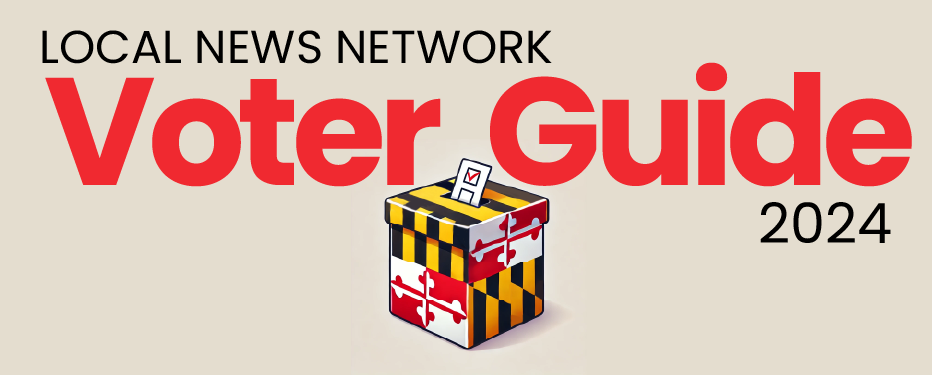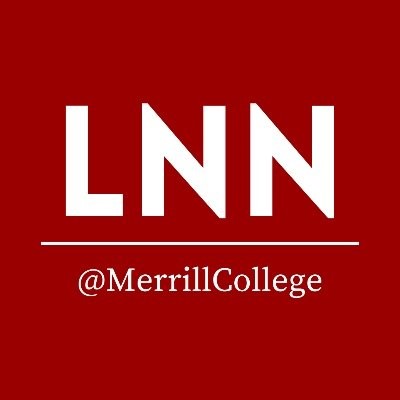Muri Lynn Dueppen
Running for school board in Carroll County
Website: dueppen4education.com
Facebook: www.facebook.com/murilynndueppen4education
How old will you be on Election Day (Nov. 5)?
55
Are you currently employed? If so, where, and what is your job title?
Corporate relations officer at the National Aquarium.
What is the highest level of education that you completed, and where did you get that degree?
Bachelor of science in biology from the College of William and Mary.
Why are you running for the school board?
I am uniquely qualified to lead our school system in a way that sets students up for success. This includes having been a dedicated local public education advocate for 10 years, fighting for the resources students and educators need. The Carroll County Education Association recognized those efforts with their Friend of Education Award in 2023. The focus of the board needs to return to academics, instead of the deeply divisive culture wars. The current board has too much allegiance to Carroll’s political power structure and no representation from the southwestern part of the county. My husband and I put down roots in Mount Airy largely because of the excellent public schools. We need to keep them that way. That matters not only to Carroll County Public Schools families but also to their neighbors without kids in the system because strong schools translate to safe, friendly, economically prosperous communities.
Our current Board of Education is badly out of balance. We need to cultivate a community where every voice is heard and valued. We need to come together on common ground with our common values front and center. We need to elect people who genuinely believe in the promise of public education, who center decisions around putting students first, who recognize and deeply admire how amazing teachers and other educators are, and who can contribute to a climate that makes learning fun. I model those traits and will work incredibly hard on behalf of every family.
What makes you a good candidate for the board?
I am proud to be endorsed by the Carroll County Education Association and Carroll Association of School Employees.
Professionally, I am the corporate relations officer at the National Aquarium. My nonprofit management career confers many applicable skills and leadership qualities: staff supervision, budgeting, strategic planning, committee and board relations, commitment to mission-driven service, creativity, tenacity, and optimism.
Right out of college, I worked with hundreds of children as an informal environmental educator. This included conducting assembly presentations with live exotic animals and facilitating farm animal encounters in addition to program development and interpretive signage production.
My husband and I raised two kids as active Carroll County Public Schools parent-volunteers. They attended from kindergarten through 12th-grade graduation (one during COVID). Having parented two students at every grade level, I have a deep knowledge of the system, policies, and personnel. As a candidate in 2018, I visited every school and interviewed every principal.
My upbringing in a military family that moved often entailed attending eight different schools growing up, including overseas. I experienced a wide range of learning environments and made friends with classmates from all walks of life.
I co-founded and co-led a nonpartisan grassroots group, VOCAL Carroll County, to promote civic engagement and good local governance. Accomplishments include advocating for a state-compliant ethics ordinance for Carroll County government; getting out the informed vote in municipal elections with the Main Streets Matter campaign, and partnering with other civics-focused groups like the local League of Women Voters and Braver Angels.
What is the most important issue facing your school board and what would you do about it if elected?
I think it is nearly impossible to choose one clear challenge that is predominant among the many serious issues facing public education in general and Carroll County Public Schools specifically. They are all complex and interconnected. None can be simply solved by the board alone. Because the teacher shortage poses the biggest threat, their greatest concern currently is the one we must take most seriously immediately: the increasing behavioral issues in classrooms. I address that partly in my responses to the school safety and cellphone policy questions. In addition, I would prioritize a review of discipline and other policies that impact educators’ and administrators’ ability to manage behavior, engaging parents as partners.
Beyond that, the ability to recruit and retain high-quality teachers is mandatory and multi-faceted. I would endeavor to be a good employer of all school staff. Providing competitive compensation, improving working conditions, and cultivating a climate of camaraderie are all keys to making Carroll County Public Schools a preferred place to work.
I believe that the single most important thing that school systems can do to improve the efficacy of instruction, educator satisfaction, and school performance is to empower educators and elevate their voices. They are second only to students as important internal stakeholders. I would advocate for a more frequent, robust formal platform for learning from them the best way to overcome behavioral and other barriers to continuously improve academic performance.
Please name a public leader you admire and explain why.
With my lifelong passion for wildlife conservation, I have long admired Dr. Jane Goodall and was thrilled when I had the opportunity to hear her speak in person and meet her briefly when I worked for the Association of Zoos and Aquariums. As a scientist she has done extensive, groundbreaking work with global reach. Her fierce intellect and huge heart are a formidable combination. She has pursued her work with tireless diligence, integrity, strength and kindness. Renowned as primatologist, her impact goes beyond chimpanzees and Africa as she is a champion for wildlife and wild places worldwide. I am also inspired by how — at age 90 — she hasn’t let up or rested on her laurels. She is a stellar example for any of us who wish to lead a purpose-driven life that includes service to our community and planet.
The Blueprint for Maryland’s Future, passed by the General Assembly in 2021, is a 10-year plan that includes increased education funding to support early childhood education, increased teacher starting pay, college/career-readiness standards for high school graduates, and expanded services to multilingual and impoverished families, among other goals. Please tell us your views on the Blueprint and how it will affect your school district.
The Blueprint’s goals are all evidence-based and have great potential to advance Maryland’s public education system. Without it I do not believe the recent and long overdue increases in teacher salary and implementation of the career ladder would have happened. That was rightly the highest priority but it isn’t enough to ensure a high-quality public education for every child.
However, the Blueprint is ambitious, unwieldy and expensive. Its mandates do not adequately account for the unique situations in every county. It should and is likely to evolve. But there are some narratives around it in Carroll County that concern me as I think they could ultimately be counter-productive, despite being mostly well-intentioned (although calling for its abolition is naïve at best). I expect it is here to stay, and so local leaders must positively partner with decision makers at the state level and respectfully and optimistically engage with lawmakers to make legislative modifications.
The combative posture of many local officials diminishes our ability to help ourselves. We must cultivate cooperation to make needed changes to the Blueprint. Meaningful, mutually respectful collaboration along with diligence, data, thoughtfulness and innovation will be necessary for staff and the board to ensure fair, successful implementation locally.
In addition, many complaints about the funding predicament at the county level fail to acknowledge that our school system would be much better positioned to reallocate resources if it had not been forced to operate under austerity conditions for a decade.
Some school districts nationwide are placing new limits on the use of cellphones in middle and high schools. What do you think should be the policy on student use of cellphones in your district, and why do you support that policy?
The dangers of an open internet and social media for young people are undisputed. So is the disruption to the learning environment of easy access to extraneous electronics in the classroom. Most classroom educators are completely clear about the magnitude of this problem, although parents have more widely varying opinions with many preferring a more permissive approach.
The best policy allows educators complete authority in the classroom, with the full support of administration. Elementary-age students do not need phones at school (if at all). Middle school-age students can learn good digital citizenship—with severely limited access, strictly enforced. At high school, young adults have responsibilities that require access to communications during the day, so I oppose completely restricting access during free time. In all cases, communication and guidance for students and parents that encourages willing cooperation is ideal to promote buying into the importance of compliance.
Are you satisfied with your school district's efforts to ensure the safety of its students? What, if anything, should be done to improve school safety in your district?
Carroll County Public Schools have excellent personnel in its Office of School Security, a dedicated volunteer Security Advisory Council, robust relationships with law enforcement, nonprofits, and community groups, plus an amazing asset in its School Resource Officer (SRO) program. However, increasing behavioral challenges are directly impacting instruction, safety and overall school climate.
Working with nonprofit organizations and agencies that address mental health and behavioral issues — including risk and threat assessment as well as targeted interventions — is crucial. Partnering with parents and community groups that pursue anti-bullying initiatives is also worthwhile. I would prioritize this multi-pronged approach to addressing the situation and improving the safety of students and staff alike.
Do you think there are circumstances when books should be removed from school libraries? If so, what kind of books should be removed, and who should make those decisions?
I agree that “sexually gratuitous” material is not only unnecessary, but potentially harmful. I support the Carroll County Public Schools material review process as it was intended to operate, which may result in the infrequent removal of a book or two. However, the expertise of professionals trained to select developmentally appropriate material should be respected, and overriding their judgment should be exceedingly rare. Reasonable mechanisms can be put in place to honor the wishes of parents who wish to restrict what their own children access without violating the rights of other parents. As an institution of learning with a mission of preparing lifelong learners for life, the last thing Carroll County Public Schools should do is prop up book banning efforts by outside political groups that have dramatically reduced the number available for eager young adult readers. Material that is challenging is essential for achieving excellence, and I support the freedom to read.
Some school districts enact policies allowing transgender and gender nonconforming students to use their preferred pronouns while at the same time not informing those students' parents about that decision. What is your opinion of such policies?
Discussions and decisions around these policies and others related to the rights and responsibilities of school systems toward transgender and gender nonconforming students must be conducted thoughtfully, sensitively and respectfully in good faith. They must also recognize the rights of other students, staff and all parents/guardians. The legal landscape around students’ rights to privacy and parents’ rights to information is a foundational factor, as is the safety of students — which is the primary and legitimate justification for these policies. Current guidance from the Maryland State Department of Education affirms the authority of local education agencies to adopt these policies. They have also been tested and affirmed in federal court. I would not personally pursue such a policy in Carroll County Public Schools at this time for multiple reasons, including concerns about the conversation itself causing harm to the students it would be intended to protect.


